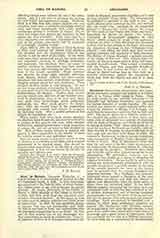

Abra de Raconis, CHARLES FRANCOIS D’, a French bishop, b. at the Chateau de Raconis in 1580, of a Calvinistic family; d. 1646. In 1592, this family was converted to the Catholic faith, of which Charles, then twelve years of age, was to become an earnest defender. He taught philosophy at the College of Plessis, in 1609; theology at the College of Navarre, in 1615, and three years later was appointed court preacher and royal almoner. At this epoch he. took an active part in religious polemics and wrote works of controversy. In 1637, he was appointed Bishop of Lavaur, but was not consecrated until 1639. In 1643 he was back in Paris, and controversies with the Jansenists engaged him up to his death. St. Vincent de Paul spurred him on and encouraged him, Two years before his death he published his “Examen et jugement du livre de la frequente communion fait contre la frequente communion et publie sous le nom du sieur Arnauld” (Paris, 1644). The following year he published a rejoinder to the reply to this. Arnauld affected great contempt for him, and declared that his works were “despised by all respectable persons”. Raconis also wrote against the heresy of “two heads of the Church [Sts. Peter and Paul],” formulated by Martin de Barcos. The bishop’s “Primaute et Souverainete singuliere de saint Pierre” (1645) roused the wrath of his opponents. Towards the close of 1645, the report was circulated in Paris that he had written to the Pope, denouncing the dangerous teachings in the “Frequente Communion”, and telling the Pope that some French bishops tolerated and approved of these impieties. The Bishop of Grasse informed a general assembly of the clergy of this fact. This aroused their animosity, all the more since some of them had recommended Arnauld‘s work. They entered a complaint with the Nuncio, and then compelled Raconis to say whether he had written the letter or not. Although he denied having done so, they drew up a common protestation against the accusations of which they were the objects and sent it to Innocent X.
JOHN J. A’ BECKET.

